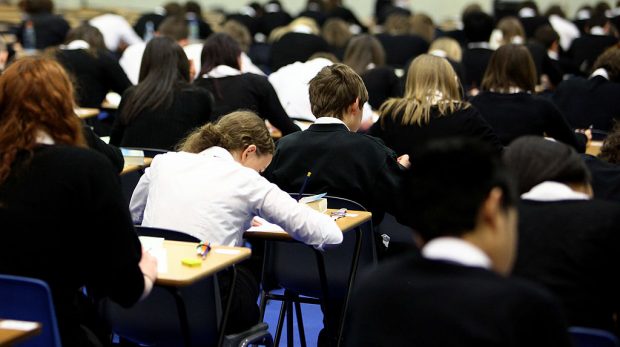The SNP is consistently criticised for failing to close the achievement gap between the best and worst Scottish state schools. After nine years in control of education, the latest statistics from the Programme for International Student Assessment (PISA) underline just what a failure the SNP has been when it comes to education; this year, Scottish schoolchildren recorded their worst ever performance in the international survey.
While policy-makers in England are looking at the next wave of reforms to follow the ongoing free schools revolution, things north of the border are rather different. In Scotland, the new Cabinet Secretary for Education, John Swinney, has ruled out any change which would involve removing schools from the control of local councils. This is a mistake. After all, it is free schools which have improved standards for some of the most disadvantaged pupils in England. And it’s also free schools which are more likely than all other types of schools to be ranked ‘Outstanding’ by Ofsted.
I came from a low-income household in Scotland and went to an unacceptably poor-quality school. Indeed, Niall Ferguson singled out my school for criticism in the month I left, saying that he wouldn’t have got to where he was today had he been educated at somewhere like Ayr Academy. He was probably right. It was an uphill battle to get on in a school like mine, where seizing opportunities to ask teachers questions or completing work that should have been done in class often meant staying behind at lunch times. It was the constant disruption of rowdy pupils that made learning unnecessarily challenging. By tolerating bad schools like mine, the SNP is letting down thousands of children. These are schools where ambition is commonly met with hostility; children’s confidence suffers and pupils rarely fulfill their potential.
I witnessed first hand the sexual violence that the UK’s politicians claim to be so exercised about. Groping, name-calling and being pushed around by boys were regular occurrences at my school. Commentators and legislators are making a case for more regulation and national guidance in order to tackle the ‘lad culture’ that supposedly plagues our schoolboys. But I think we should be far more concerned by the underlying problem: that there are a large number of schools in Britain with totally out-of-control children. In successful, well-disciplined schools, even the most boisterous boys seldom get away with the sort of behavior that’s tolerated in below average schools.
Earlier this year, I attended the Michaela Debate at City Hall where the methods used in Michaela Community School are discussed. This is a ‘No Excuses’ free school in Brent which appears to have achieved a miracle through its disciplinary methods in terms of behaviour and ethos – and that is before taking into account the fact that the school has well above the national average number of pupils on free school meals, and whose first language isn’t English.
‘No Excuses’ schools like Michaela are not only impressive when you step inside, but the evidence shows that substantial performance gains can be made when they are situated in areas which are both urban and inhabited by pupils who would typically perform relatively poorly. Adopting the free schools policy in Scotland would be the most reliable way of replicating the effective methods we’ve witnessed in England and other parts of the world. It would also introduce some much-needed choice into the Scottish schooling system.
The English education system hasn’t got everything right. But Scottish ministers are actively choosing not to benefit from the opportunity offered by devolution to share the good ideas arising from experimentation in the UK’s different regions. It’s unclear whether this is because the SNP are turning their noses up at English reforms, or because their ideology is geared firmly towards centralisation, regardless of its impact on children’s futures. Imagine a Michaela Community School popping up in Glasgow’s Drumchapel; that would be a truly inspiring prospect. If the SNP continues to ignore the huge potential of the free schools policy, it deserves to lose power in 2020.
Sophie Sandor is Programmes Manager at the Institute of Economic Affairs but writes in a personal capacity






Comments